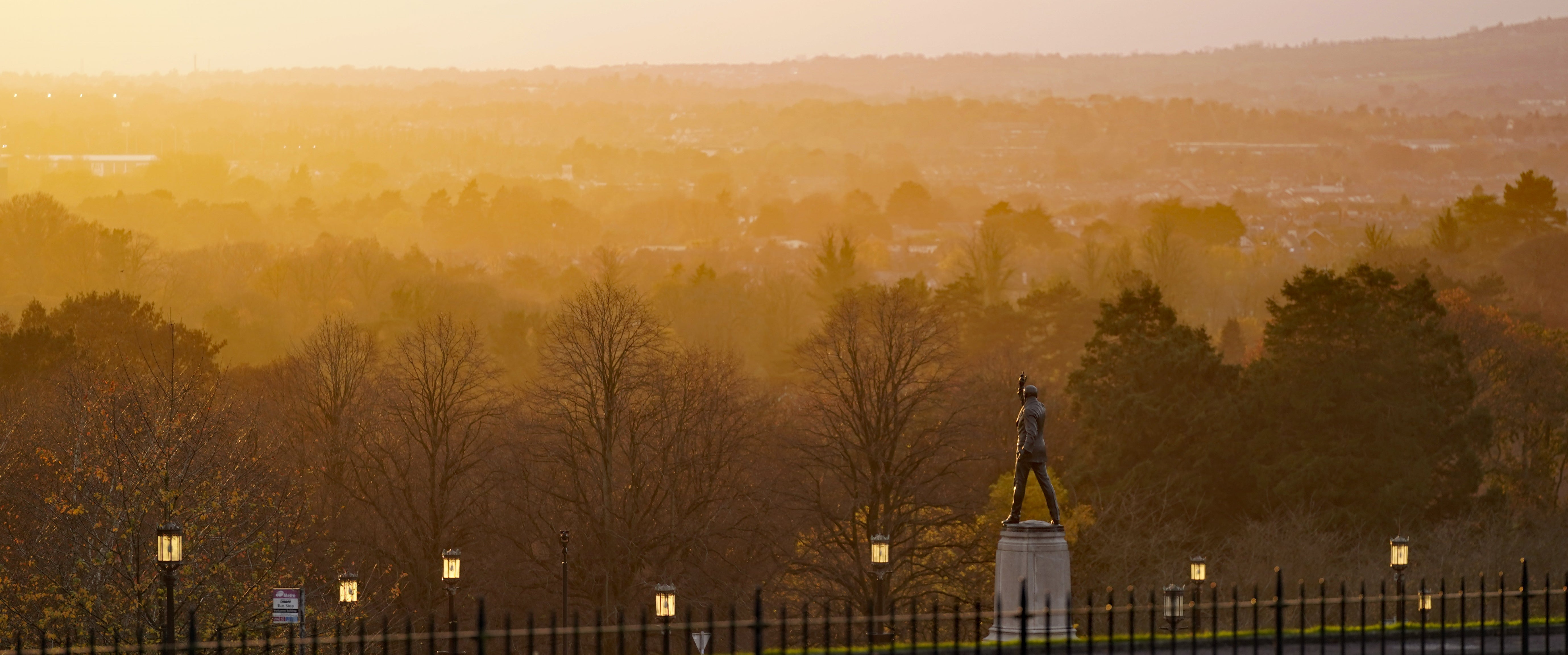In Pictures: Protests, protocol and princes mark Northern Ireland centenary year
A new first minister was elected as the DUP worked through three leaders in just three weeks.

Your support helps us to tell the story
From reproductive rights to climate change to Big Tech, The Independent is on the ground when the story is developing. Whether it's investigating the financials of Elon Musk's pro-Trump PAC or producing our latest documentary, 'The A Word', which shines a light on the American women fighting for reproductive rights, we know how important it is to parse out the facts from the messaging.
At such a critical moment in US history, we need reporters on the ground. Your donation allows us to keep sending journalists to speak to both sides of the story.
The Independent is trusted by Americans across the entire political spectrum. And unlike many other quality news outlets, we choose not to lock Americans out of our reporting and analysis with paywalls. We believe quality journalism should be available to everyone, paid for by those who can afford it.
Your support makes all the difference.Marking its 100th anniversary, Northern Ireland entered 2021 during a lockdown aimed at tackling the second wave of coronavirus.
As the year played out, the political divisions remained stark both internally and externally. A new first minister was elected as the DUP worked through three leaders in just three weeks.
Meanwhile, tensions with the Westminster government over the Northern Ireland Protocol and proposals for an amnesty for military veterans and ex-paramilitaries involved in Troubles incidents continued to boil over.
Church leaders came together to deliver a message of reconciliation at a cross-community service to mark the centenary of the formation of Northern Ireland in October.
The Queen had been set to attend but was unable to travel after she fell ill.
In politics, Arlene Foster stepped down as DUP leader in April after party criticism on her handling of several key issues including the Brexit protocol, the emergence of a border in the Irish sea and her decision to abstain, rather than vote against, a ban on gay conversion therapy.
But what followed highlighted more divisions within the party after Edwin Poots narrowly won the leadership in a secret ballot in May, only to resign 21 days later after his efforts to press ahead with reconstituting Stormont’s powersharing Executive alongside Sinn Fein met significant resistance from fellow DUP members, among other issues.
Paul Givan, who Mr Poots had been named as First Minister, continued in that role even after MP Sir Jeffrey Donaldson was ratified as the new leader.
Tensions remained with the Westminster government over the Northern Ireland Protocol and the question of whether a hard border either in the Irish Sea or between north and south was the best way to resolve the Brexit impasse with the EU.
The differing opinions on potential solutions stirred up further the community divisions, with rioting and damage linked to the political disagreements.
In July, Northern Ireland Secretary Brandon Lewis announced plans for a statute of limitations which would end all prosecutions for Troubles incidents up to April 1998, and would apply to military veterans as well as ex-paramilitaries.
The proposals were met with widespread opposition on all sides, including from the families who marked the 50th anniversary of the Ballymurphy massacre in August. An inquest in May had ruled the 11 victims had been killed by the British Army and that they were all innocent.
Although the Queen was too ill to attend the centenary events – and Irish President Michael D Higgins pointedly turned down the invitation because he believed it was not politically neutral – the Prince of Wales and Duke and Duchess of Cambridge all enjoyed Northern Irish hospitality in 2021.